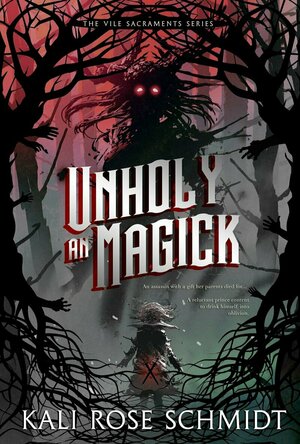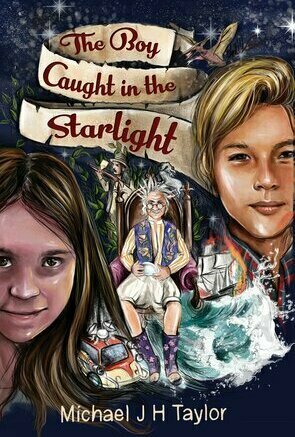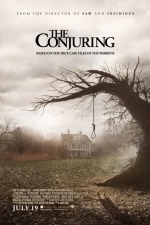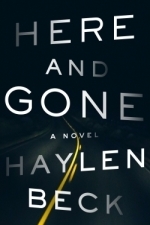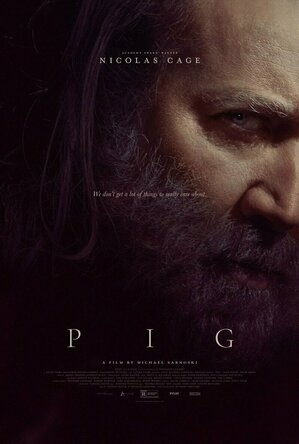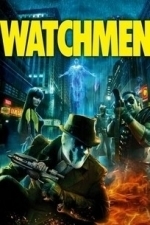Search
Search results
Becs (244 KP) rated An Unholy Magick in Books
Dec 2, 2019
the enemies to lovers (3 more)
the plot
the characters are relatable
there are not any "good guys" or "heroes"; everybody is a "bad guy" or "villain"
An enthralling read that will leave you wanting more
You can also find this review on my blog: bookingwayreads.wordpress.com
“The desire for power is a murderer.”
Trigger Warnings: death, injury, murder, gore, loss of a parent(s), talk of enslavement, crucification, talk of torture, talk of war, beheading, violence
Thoughts:
I haven’t read many “dark fantasy” books and An Unholy Magick really makes me want to start reading more. It was gruesome, it had gore, it was dark, and it was witchy. Everything I love in a book!
Now, this isn’t your typical “main character is the hero” sort of story. Elena Salas was a complicated, morally gray protagonist with a dark past. You could almost say she was a bit villainous with the career she took: assassin-for-hire. Elena wasn’t likable at times but with everything she had been through, she and her actions were relatable.
One thing I really liked about this story’s plot was that there was no standard “hero” or “good guys.” Everybody was considered a “bad guy” or a “villain” in their own way. This really made the whole story more realistic. More relatable to today’s standard’s. And with the tasks and complications Elena encounters at what seems like every turn, it makes it seem like the plot is out to tear her down. This causes an extremely headstrong protagonist to form in a mere few chapters.
Now, if you are anything like me and always crave a bit of romance in a fantasy book, you totally get it with An Unholy Magick. There’s a bit of a love triangle and enemies to lovers situation between three (3) of the main characters – Elena, Matvey, and Zoran. I was seriously rooting for all of them and I absolutely despise love triangles. So that was a bit of a first for me! All three of these characters also shared a common theme: pain. At some point in their lives, they had something traumatic happen to them. To me, this just really put the icing on the cake. Even making these three characters along with Elena’s brother, Jamie, all the more likeable, relatable, and realistic.
An Unholy Magick was imaginative, fun, and unique. The world was constructed beautifully and kept making me want more of it. The magick system was also constructed in a way that made it understandable from the get go. The only reason why I didn’t rate this enchanting book a five out of five stars, is due to the beginning being a bit difficult to get into because it read awfully slow. Also, because the format I received the book in was all wanky and hard to read at times. It was an eARC, so that could be why. But other than that, this complex and unique read is one that I feel most will enjoy!
“The desire for power is a murderer.”
Trigger Warnings: death, injury, murder, gore, loss of a parent(s), talk of enslavement, crucification, talk of torture, talk of war, beheading, violence
Thoughts:
I haven’t read many “dark fantasy” books and An Unholy Magick really makes me want to start reading more. It was gruesome, it had gore, it was dark, and it was witchy. Everything I love in a book!
Now, this isn’t your typical “main character is the hero” sort of story. Elena Salas was a complicated, morally gray protagonist with a dark past. You could almost say she was a bit villainous with the career she took: assassin-for-hire. Elena wasn’t likable at times but with everything she had been through, she and her actions were relatable.
One thing I really liked about this story’s plot was that there was no standard “hero” or “good guys.” Everybody was considered a “bad guy” or a “villain” in their own way. This really made the whole story more realistic. More relatable to today’s standard’s. And with the tasks and complications Elena encounters at what seems like every turn, it makes it seem like the plot is out to tear her down. This causes an extremely headstrong protagonist to form in a mere few chapters.
Now, if you are anything like me and always crave a bit of romance in a fantasy book, you totally get it with An Unholy Magick. There’s a bit of a love triangle and enemies to lovers situation between three (3) of the main characters – Elena, Matvey, and Zoran. I was seriously rooting for all of them and I absolutely despise love triangles. So that was a bit of a first for me! All three of these characters also shared a common theme: pain. At some point in their lives, they had something traumatic happen to them. To me, this just really put the icing on the cake. Even making these three characters along with Elena’s brother, Jamie, all the more likeable, relatable, and realistic.
An Unholy Magick was imaginative, fun, and unique. The world was constructed beautifully and kept making me want more of it. The magick system was also constructed in a way that made it understandable from the get go. The only reason why I didn’t rate this enchanting book a five out of five stars, is due to the beginning being a bit difficult to get into because it read awfully slow. Also, because the format I received the book in was all wanky and hard to read at times. It was an eARC, so that could be why. But other than that, this complex and unique read is one that I feel most will enjoy!
Night Reader Reviews (683 KP) rated The Boy Caught in the Starlight in Books
Feb 29, 2020
Honest Review for Free Copy of Book
The Boy Caught In The Starlight by Michael J H Taylor is a wonderful adventure where the heroes never go any farther than a cabin a little ways from home. This tale is expected to be the first in a series.
Jake lives with his mother who loves bragging about him a little too much. He is smothered by her overwhelming pressure to be perfect and longs for adventure. However, there really is not much in the lines of adventure for a young teenager these days. So being board Jake asks his mother if he can spend the weekend with his father, mostly for a change. Jake goes with his father to pick up an old Bubble Car that his father recently purchased from Professor Septimus Kneebone, self-proclaimed genius. It is this trip that sets Jake on the course for the dangerous adventure that he so longs for.
It turns out that the Bubble Car is no longer a car but a very special machine. This machine has the unique ability to show images of things past to those who know how to work it. Although no one can interact with the images in anyway they can show wondrous things, such as the location of treasure. As luck would have it a gang of thieves know about the machine and have been using it to find long lost treasurer to get rich. Yet what would such a gang do when they discover the Professor has decided to dismantle the machine forever.
This book was surprisingly unique. It offered multiple turns that I did not expect. The story brought me to many different theories along the way to discovering the truth. I hope the promised second book is just as entertaining as the first. What I did not like was that at first, I pegged this book to be much like back to the future. As it turns out I was wrong. This is a problem because the description of the book comes off differently. I just don’t want anyone to go into this book with the wrong expectations.
Young adults and children alike will enjoy this tale. Though a little on the long side for very young children a tale of adventure such as this would be good spread out over multiple days as a wonderful bedtime story. I rate this book 3 out of 4. I was very happy with this book. The slightly misleading description lost a rating point for me, but other than that I found no major complaint. I believe this book to be a good story for all who pick it up.
https://www.facebook.com/nightreaderreviews/
https://smashbomb.com/nightreader
https://nightreaderreviews.blogspot.com/
Jake lives with his mother who loves bragging about him a little too much. He is smothered by her overwhelming pressure to be perfect and longs for adventure. However, there really is not much in the lines of adventure for a young teenager these days. So being board Jake asks his mother if he can spend the weekend with his father, mostly for a change. Jake goes with his father to pick up an old Bubble Car that his father recently purchased from Professor Septimus Kneebone, self-proclaimed genius. It is this trip that sets Jake on the course for the dangerous adventure that he so longs for.
It turns out that the Bubble Car is no longer a car but a very special machine. This machine has the unique ability to show images of things past to those who know how to work it. Although no one can interact with the images in anyway they can show wondrous things, such as the location of treasure. As luck would have it a gang of thieves know about the machine and have been using it to find long lost treasurer to get rich. Yet what would such a gang do when they discover the Professor has decided to dismantle the machine forever.
This book was surprisingly unique. It offered multiple turns that I did not expect. The story brought me to many different theories along the way to discovering the truth. I hope the promised second book is just as entertaining as the first. What I did not like was that at first, I pegged this book to be much like back to the future. As it turns out I was wrong. This is a problem because the description of the book comes off differently. I just don’t want anyone to go into this book with the wrong expectations.
Young adults and children alike will enjoy this tale. Though a little on the long side for very young children a tale of adventure such as this would be good spread out over multiple days as a wonderful bedtime story. I rate this book 3 out of 4. I was very happy with this book. The slightly misleading description lost a rating point for me, but other than that I found no major complaint. I believe this book to be a good story for all who pick it up.
https://www.facebook.com/nightreaderreviews/
https://smashbomb.com/nightreader
https://nightreaderreviews.blogspot.com/
Gareth von Kallenbach (980 KP) rated The Conjuring (2013) in Movies
Aug 6, 2019
It’s quite easy to think you have a ghost haunting your home. The creeks and cracks of settling foundation, leaky pipes, drafty windows or appliances can sound aerie. Why is it that our imaginations jump to that conclusion and not simply the truth. In some cases this causes people to essentially “cry wolf”, making it hard for us to believe in the true hauntings that have plagued families for generations. The Perron family was one of the many that had been terrorized by a malevolent spirit in their recently purchased farmhouse.
The story follows Ed and Lorraine Warren who’s lives have spent dealing with hundreds of cases of hauntings all around the US. From small hauntings to haunted items and more importantly exorcisms. The film begins with one of their possession cases that involves two young woman who were under the impression that they were being haunted by a little girl who took a likening to their Annabelle doll. They invited the girl to live inside of the doll not knowing that the entity was a daemon. (I do want to interject that the real Annabelle doll was a raggedy Anne doll but for the films sake they made the doll look like it was related to Chucky).
Annabelle is just an introduction to the audience of what Ed and Lorraine Warren do. One of their bigger cases is that of the Perron family. Roger (Ron Livingston), his wife Carolyn (Lili Taylor) and their five daughters move to an old farmhouse in a remote area not knowing the past of the land or the home itself. Ed and Lorraine agree to help the family exorcise their home, not realizing that the case was more dangerous than they had originally thought.
This film is by far the best true ghost story film that I have seen to date. Granted it has somewhat of a slow beginning, once the scares start happening it gets better and better. The acting was not the best nor the dialogue, however if you pay close attention to the story, those weaknesses of the film are easily forgotten. It is extremely refreshing to not see any CGI in a film like this and knowing that it can be as equally scary if not more with simple camera angles and excellent concepts. I also like the absence of blood and gore that has seen to be quite overdone with most horror films lately. The way that practical makeup was used to create such scary characters is only a small part of how much thought was put into this.
This film is scary and when I say that I really mean it. When I screened this, I was sitting in the middle of two big burley men who also jumped at every surprise. If you have been waiting for a film to scare you, this my friends will do it. It is definitely not for the faint of heart.
The story follows Ed and Lorraine Warren who’s lives have spent dealing with hundreds of cases of hauntings all around the US. From small hauntings to haunted items and more importantly exorcisms. The film begins with one of their possession cases that involves two young woman who were under the impression that they were being haunted by a little girl who took a likening to their Annabelle doll. They invited the girl to live inside of the doll not knowing that the entity was a daemon. (I do want to interject that the real Annabelle doll was a raggedy Anne doll but for the films sake they made the doll look like it was related to Chucky).
Annabelle is just an introduction to the audience of what Ed and Lorraine Warren do. One of their bigger cases is that of the Perron family. Roger (Ron Livingston), his wife Carolyn (Lili Taylor) and their five daughters move to an old farmhouse in a remote area not knowing the past of the land or the home itself. Ed and Lorraine agree to help the family exorcise their home, not realizing that the case was more dangerous than they had originally thought.
This film is by far the best true ghost story film that I have seen to date. Granted it has somewhat of a slow beginning, once the scares start happening it gets better and better. The acting was not the best nor the dialogue, however if you pay close attention to the story, those weaknesses of the film are easily forgotten. It is extremely refreshing to not see any CGI in a film like this and knowing that it can be as equally scary if not more with simple camera angles and excellent concepts. I also like the absence of blood and gore that has seen to be quite overdone with most horror films lately. The way that practical makeup was used to create such scary characters is only a small part of how much thought was put into this.
This film is scary and when I say that I really mean it. When I screened this, I was sitting in the middle of two big burley men who also jumped at every surprise. If you have been waiting for a film to scare you, this my friends will do it. It is definitely not for the faint of heart.
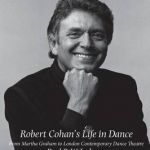
The Last Guru: The Authorised Biography of Robert Cohan
Book
Robert Cohan is part of the pantheon of American contemporary choreographers which includes Alvin...

FS magazine
Lifestyle and Magazines & Newspapers
App
FS is the fit gay men’s health magazine. It talks about everything from your health to your heart...
BookInspector (124 KP) rated Here and Gone in Books
Sep 24, 2020
All my reviews can be found on https://bbookinspector.wordpress.com/
I was enjoying it from the first pages of the book. The description above describes this book quite well. It started with Audra in the car with her children. That got my attention. Why? Where are they going? And little by little the main character Audra, unfolded it. I am not big fan of the books about children and their parents, because all you read is how much parents love their kids. But this book somehow gripped me. The main character suffered a lot in her life, so the way she was trying to fight for her kids and not to give up, really made me respect her. I think, that author of this novel, done a great job by letting all the main characters to speak in this book, even the evil ones. Another great point of this book, that author was finishing every chapter with a cliff hanger, and then just starting the next chapter with different characters story. It was so addictive, and all I wanted was to figure out, how the previous story finished. I enjoyed reading the story from children’s perspective as well. The little boy, Sean, was a real sweetheart; incredibly smart, caring and a little hero. (Reminder, I do not like children). The ability to read the story from different perspectives and told by different characters made it very enjoyable, and allowed to understand the characters way better.
The whole plot was happening in one area and was really concentrated on a small, dying town of Silver Water. I really liked the whole story; I found it really original and very interesting. The more I read this book, the catchier it got. I really liked how this story unfolded, with Audra’s difficult past, husband’s abuse, and her fight for her children at present. I really enjoyed the twists and turns in this book. When I thought that is no one there to help Audra, author nicely twisted in a help for her. I liked the topics this novel was discussing: different ways of emotional abuse against women; hard life and decisions when you don’t have money; corrupt authorities and how they can ruin people’s lives.
The writing style of this book is not difficult and language used makes this book a pleasant and easy read. As I mentioned in my previous reviews, I’m a big fan of short chapters, and this book is another winner in that category for me. On the other hand, there are some violent details in this book, so if you have weak nerves, be prepared. The ending of the book was well thought through and didn’t leave me disappointed. It was well deserved after everything. So to conclude, it is twisted, fast paced and addictive thriller filled with mother’s fight and love for her children, and surprisingly I really enjoyed it.
Was given this book by publisher and NetGalley for honest review.
I was enjoying it from the first pages of the book. The description above describes this book quite well. It started with Audra in the car with her children. That got my attention. Why? Where are they going? And little by little the main character Audra, unfolded it. I am not big fan of the books about children and their parents, because all you read is how much parents love their kids. But this book somehow gripped me. The main character suffered a lot in her life, so the way she was trying to fight for her kids and not to give up, really made me respect her. I think, that author of this novel, done a great job by letting all the main characters to speak in this book, even the evil ones. Another great point of this book, that author was finishing every chapter with a cliff hanger, and then just starting the next chapter with different characters story. It was so addictive, and all I wanted was to figure out, how the previous story finished. I enjoyed reading the story from children’s perspective as well. The little boy, Sean, was a real sweetheart; incredibly smart, caring and a little hero. (Reminder, I do not like children). The ability to read the story from different perspectives and told by different characters made it very enjoyable, and allowed to understand the characters way better.
The whole plot was happening in one area and was really concentrated on a small, dying town of Silver Water. I really liked the whole story; I found it really original and very interesting. The more I read this book, the catchier it got. I really liked how this story unfolded, with Audra’s difficult past, husband’s abuse, and her fight for her children at present. I really enjoyed the twists and turns in this book. When I thought that is no one there to help Audra, author nicely twisted in a help for her. I liked the topics this novel was discussing: different ways of emotional abuse against women; hard life and decisions when you don’t have money; corrupt authorities and how they can ruin people’s lives.
The writing style of this book is not difficult and language used makes this book a pleasant and easy read. As I mentioned in my previous reviews, I’m a big fan of short chapters, and this book is another winner in that category for me. On the other hand, there are some violent details in this book, so if you have weak nerves, be prepared. The ending of the book was well thought through and didn’t leave me disappointed. It was well deserved after everything. So to conclude, it is twisted, fast paced and addictive thriller filled with mother’s fight and love for her children, and surprisingly I really enjoyed it.
Was given this book by publisher and NetGalley for honest review.
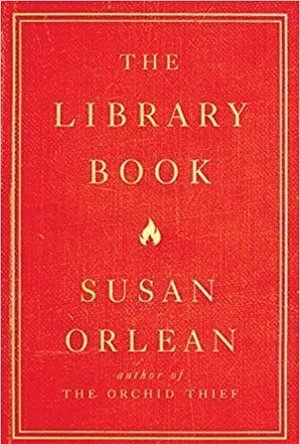
The Library Book
Book
A dazzling love letter to a beloved institution—and an investigation into one of its greatest...
Charlie Cobra Reviews (1840 KP) rated the PlayStation 4 version of Samurai Warriors 5 in Video Games
Sep 14, 2021 (Updated Sep 14, 2021)
Revamped art style and character designs (1 more)
All new weapon system
Character animations are a bit stiff in scenes with dialogue (1 more)
Battle music can be repetitive
Fantastic Return For The Warriors Series
Samurai Warriors 5 is a 2021 hack and slash, action, "Musou/Warriors" game developed by Omega Force and published by Koei Tecmo. It is available on PS4, Xbox One, Nintendo Switch and PC, with current gen consoles not featuring an upgraded version yet. The fifth installment in the series, it is a re-imagining as almost everything from art style to character designs has been revamped. The story has been redone as well, focusing mainly on Nobunaga Oda and Mitsuhide Akechi, up to the events of the Honno-ji incident.
Play as the legends of the Sengoku Era of Japanese history in this epic "Warriors" game. Samurai Warriors 5 has been revamped with a new art style and an all new weapon system allowing characters to utilize any weapon in a large arsenal as you mow down hundreds of soldiers from opposing armies. Every weapon has special moves to use in combat and can be upgraded in the blacksmith menu. Characters have a simplistic skill tree and some also have ultimate moves. A stable menu is available to upgrade and train horses you acquire as well. There are two game modes: Musou Mode, which is a mission based story mode and Citadel Mode, which is an extra game mode in which you defend a base while completing different objectives to get the highest score you can.
Utilizing new character designs and a new art style based on Japanese paintings, Samurai Warriors has never looked so good. Musou attacks look great with some ending in a character posing for a painting. Character animations are great in battle but a little stiff in scenes with dialogue, however, the cutscenes are well done.
Battle music can get repetitive but if you love the "Warriors" series it's what you've come to expect. Classic "Warriors" style music with epic rock/metal guitar riffs are mixed with the traditional Japanese style music, although with more emphasis on the latter. Overall the music is very enjoyable. The sound design for weapon combos gives you a good sense of impact too and really makes you feel like you're doing damage.
Samurai Warriors 5 is the tale of Nobunaga Oda, the legendary Japanese Daimyo (Lord) on his quest to unify all the lands of Japan and bring peace to it's people. This game is based off of historical records of Nobunaga's life and that of Mitsuhide Akechi with many liberties taken to romanticize real life historical accounts. The plot follows them through their lives, up to the incident at Honno-ji.
Verdict: [7/10]
A fantastic return to form for the "Warriors" series after the abysmal Dynasty Warriors 9. The new art style is a refreshing take and gameplay innovates while simultaneously not alienating lovers of past games in the series.
Play as the legends of the Sengoku Era of Japanese history in this epic "Warriors" game. Samurai Warriors 5 has been revamped with a new art style and an all new weapon system allowing characters to utilize any weapon in a large arsenal as you mow down hundreds of soldiers from opposing armies. Every weapon has special moves to use in combat and can be upgraded in the blacksmith menu. Characters have a simplistic skill tree and some also have ultimate moves. A stable menu is available to upgrade and train horses you acquire as well. There are two game modes: Musou Mode, which is a mission based story mode and Citadel Mode, which is an extra game mode in which you defend a base while completing different objectives to get the highest score you can.
Utilizing new character designs and a new art style based on Japanese paintings, Samurai Warriors has never looked so good. Musou attacks look great with some ending in a character posing for a painting. Character animations are great in battle but a little stiff in scenes with dialogue, however, the cutscenes are well done.
Battle music can get repetitive but if you love the "Warriors" series it's what you've come to expect. Classic "Warriors" style music with epic rock/metal guitar riffs are mixed with the traditional Japanese style music, although with more emphasis on the latter. Overall the music is very enjoyable. The sound design for weapon combos gives you a good sense of impact too and really makes you feel like you're doing damage.
Samurai Warriors 5 is the tale of Nobunaga Oda, the legendary Japanese Daimyo (Lord) on his quest to unify all the lands of Japan and bring peace to it's people. This game is based off of historical records of Nobunaga's life and that of Mitsuhide Akechi with many liberties taken to romanticize real life historical accounts. The plot follows them through their lives, up to the incident at Honno-ji.
Verdict: [7/10]
A fantastic return to form for the "Warriors" series after the abysmal Dynasty Warriors 9. The new art style is a refreshing take and gameplay innovates while simultaneously not alienating lovers of past games in the series.
Emma @ The Movies (1786 KP) rated Pig (2021) in Movies
Sep 30, 2021
A new Nicolas Cage film that's not below three stars on IMDb?! Who had "Earth sliding into the Twilight Zone" on their 2021 bingo card?
Rob must delve into his past when his only companion, a truffle-hunting pig, is pignapped in the dead of night.
I'm genuinely at a loss as to what I can say about the plot of Pig... I mean, it's basically Taken with a pig. I'm not sure I want to say much more about it at the moment because A] it mostly defies explanation, and B] bits of the detail will unfold as we go.
Nicolas Cage does some actual serious acting, and not the slightly ridiculous serious acting that happens in most of his other recent releases. Robin is basically a recluse out in the woods selling truffles and living off the land. I initially thought that we were going to get another non-speaking role with Pig, but his character evolves throughout in such a wonderful way.
Alex Wolff plays Amir, Robin's "food mover", it took me a moment to realise it was him. In my head he's still a "child", as I only really know him from the Jumanjis and Old. Seeing him playing an adult threw me. That did colour my opinion a little early on, but he started to grow on me as we got deeper into the film.
Their partnership starts off as one of necessity, but once the pignapping happens their bond transforms and you get to see how loss has affected both of them. They balance out the gaps in each other's lives, and the journey they take together works as a great way to further the background information and keep everything moving along.
The beginning did feel a little sparse, it wasn't quite a bored feeling, but I was fidgety and waiting for things to happen. That feeling carried on, and though that worried me a bit, I actually found it to be a rather calming tone that carried through the whole film. Robin's laid back attitude even flowed through the more actiony bits.
Robin's deep and insightful nature seeps into everyone around him and leaves them changes, it left me changed, and I enjoyed watching it all unfold throughout the story. There were some wonderful moments in the script and they left me thinking about the film on several different levels after I finished it.
There's something about this film, it hits you in so many ways. It's all stunning earthly tones that contrast well with the urban landscapes. My senses were going wild, I could smell the damp earth, and Robin, I could smell the food from all the sounds of cooking and the pouring of wine. It all led to some incredibly powerful moments.
I don't know how Pig managed to create such a feast for the senses, but it left me contented and oddly zen.
Originally posted on: https://emmaatthemovies.blogspot.com/2021/09/pig-movie-review.html
Rob must delve into his past when his only companion, a truffle-hunting pig, is pignapped in the dead of night.
I'm genuinely at a loss as to what I can say about the plot of Pig... I mean, it's basically Taken with a pig. I'm not sure I want to say much more about it at the moment because A] it mostly defies explanation, and B] bits of the detail will unfold as we go.
Nicolas Cage does some actual serious acting, and not the slightly ridiculous serious acting that happens in most of his other recent releases. Robin is basically a recluse out in the woods selling truffles and living off the land. I initially thought that we were going to get another non-speaking role with Pig, but his character evolves throughout in such a wonderful way.
Alex Wolff plays Amir, Robin's "food mover", it took me a moment to realise it was him. In my head he's still a "child", as I only really know him from the Jumanjis and Old. Seeing him playing an adult threw me. That did colour my opinion a little early on, but he started to grow on me as we got deeper into the film.
Their partnership starts off as one of necessity, but once the pignapping happens their bond transforms and you get to see how loss has affected both of them. They balance out the gaps in each other's lives, and the journey they take together works as a great way to further the background information and keep everything moving along.
The beginning did feel a little sparse, it wasn't quite a bored feeling, but I was fidgety and waiting for things to happen. That feeling carried on, and though that worried me a bit, I actually found it to be a rather calming tone that carried through the whole film. Robin's laid back attitude even flowed through the more actiony bits.
Robin's deep and insightful nature seeps into everyone around him and leaves them changes, it left me changed, and I enjoyed watching it all unfold throughout the story. There were some wonderful moments in the script and they left me thinking about the film on several different levels after I finished it.
There's something about this film, it hits you in so many ways. It's all stunning earthly tones that contrast well with the urban landscapes. My senses were going wild, I could smell the damp earth, and Robin, I could smell the food from all the sounds of cooking and the pouring of wine. It all led to some incredibly powerful moments.
I don't know how Pig managed to create such a feast for the senses, but it left me contented and oddly zen.
Originally posted on: https://emmaatthemovies.blogspot.com/2021/09/pig-movie-review.html
Gareth von Kallenbach (980 KP) rated Watchmen (2009) in Movies
Aug 14, 2019
In an alternate 1985, where Nixon is president, The U.S. won the Vietnam War, and costumed heroes have been banned by an act of the Senate, a superhero is killed. The death of the mercurial entity known as The Comedian (Jeffrey Dean Morgan) sets a string of events into motion that will soon see the world poised on the edge of nuclear annihilation, and the few remaining heroes locked in a life or death race against time to save the world. In the gritty and compelling new movie “Watchmen” by Director Zack Snyder, a clever blend of film noir and gumshoe style films of old combined with action and adventure as well as a deep examination of human frailties to create a film like no other.
No sooner has the death of the Comedian hit the streets (literally), when the edgy vigilante Rorschach (Jackie Earle Haley), begins to suspect that there is a larger and far more sinister plot in effect, one that has targeted the few remaining costumed avengers of New York City. Rorschach’s theory is disbelieved by his former associate Dan (Patrick Wilson), who prowled the streets as Night Owl and is now content to keep to himself, with his days of costumed glory behind him. He keeps his social circle limited to the first Night Owl and visiting with Laurie Jupiter ( Malin Akerman), and her husband, Dr. Manhattan (Billy Crudup).
With his concerns being dismissed, Rorschach is left to do the legwork on the mystery which soon shifts into high gear when he is framed for a murder he actually did not commit and an attempt is made on the life of the other former Watchmen, Ozymandias (Matthew Goode). With Rorschach in prison and surrounded by enemies, Dr. Manhattan, the all powerful and blue skinned being, is forced to take refuge on Mars after Laurie leaves him and a series of accusations are levied against him at a press conference .
It soon becomes clear to all that the death of The Comedian was not a random act of violence or a simple act of revenge, but rather the first salvo in a war against costumed heroes. With the former team in chaos, Laurie to take up residence with Dan, who has long held a torch for her, to defy the government order and suit up again. After saving a group of people from a fire, Laurie and Dan find the passion and purpose that has been missing from their post-hero lives and passionately unite and set out to free Rorschach and get to the bottom of the conspiracy before it is to late.
The film is an amazing mix of comic book action and mystery that includes a suprising amount of mature material that examines everything from humanity’s ultimate destiny to the inner psyche of tortured and flawed individuals. The characters all have their flaws and traumas and compensate by donning masks and taking on new personas. The deeply troubled Rorschach is filled in by some horrific and disturbing flashbacks that show how he became the disturbed and deeply dangerous crusader for justice that he is, so extreme in his measures that he is wanted by the police for his actions. Dan and Laurie try to move on from their past, but find that they are more comfortable in their costumed personas than they are in their day-to-day lives. Dr. Manhattan is perhaps the most dysfunctional of all as he has shut himself off from his wife, humanity, and joy. He has evolved beyond caring for anything but his experiments.
Snyder keeps the nearly three hour film moving at a brisk pace and deftly captures the look and tone of the graphic novel on which the film is based. The opening segment that shows alternate versions of great moments in history is amazing, as is the well choreographed action sequences. Despite being a superhero film, “Watchmen” is a superb mystery and drama that is loaded with interesting characters and clever social commentary. The cast is very strong, and Haley is remarkable as Rorschach. He is utterly captivating whenever he is on the screen and has crafted a true modern anti-hero for the masses.
Some may find the graphic violence and sex in the film a bit extreme, but in order to fully capture the duality of the characters and the dark world that they dwell in, it was in many ways restrained from what is actually implied by the source material. “Watchmen”, is a true marvel and is one of the most entertaining, diverse, and original action films in memory.
No sooner has the death of the Comedian hit the streets (literally), when the edgy vigilante Rorschach (Jackie Earle Haley), begins to suspect that there is a larger and far more sinister plot in effect, one that has targeted the few remaining costumed avengers of New York City. Rorschach’s theory is disbelieved by his former associate Dan (Patrick Wilson), who prowled the streets as Night Owl and is now content to keep to himself, with his days of costumed glory behind him. He keeps his social circle limited to the first Night Owl and visiting with Laurie Jupiter ( Malin Akerman), and her husband, Dr. Manhattan (Billy Crudup).
With his concerns being dismissed, Rorschach is left to do the legwork on the mystery which soon shifts into high gear when he is framed for a murder he actually did not commit and an attempt is made on the life of the other former Watchmen, Ozymandias (Matthew Goode). With Rorschach in prison and surrounded by enemies, Dr. Manhattan, the all powerful and blue skinned being, is forced to take refuge on Mars after Laurie leaves him and a series of accusations are levied against him at a press conference .
It soon becomes clear to all that the death of The Comedian was not a random act of violence or a simple act of revenge, but rather the first salvo in a war against costumed heroes. With the former team in chaos, Laurie to take up residence with Dan, who has long held a torch for her, to defy the government order and suit up again. After saving a group of people from a fire, Laurie and Dan find the passion and purpose that has been missing from their post-hero lives and passionately unite and set out to free Rorschach and get to the bottom of the conspiracy before it is to late.
The film is an amazing mix of comic book action and mystery that includes a suprising amount of mature material that examines everything from humanity’s ultimate destiny to the inner psyche of tortured and flawed individuals. The characters all have their flaws and traumas and compensate by donning masks and taking on new personas. The deeply troubled Rorschach is filled in by some horrific and disturbing flashbacks that show how he became the disturbed and deeply dangerous crusader for justice that he is, so extreme in his measures that he is wanted by the police for his actions. Dan and Laurie try to move on from their past, but find that they are more comfortable in their costumed personas than they are in their day-to-day lives. Dr. Manhattan is perhaps the most dysfunctional of all as he has shut himself off from his wife, humanity, and joy. He has evolved beyond caring for anything but his experiments.
Snyder keeps the nearly three hour film moving at a brisk pace and deftly captures the look and tone of the graphic novel on which the film is based. The opening segment that shows alternate versions of great moments in history is amazing, as is the well choreographed action sequences. Despite being a superhero film, “Watchmen” is a superb mystery and drama that is loaded with interesting characters and clever social commentary. The cast is very strong, and Haley is remarkable as Rorschach. He is utterly captivating whenever he is on the screen and has crafted a true modern anti-hero for the masses.
Some may find the graphic violence and sex in the film a bit extreme, but in order to fully capture the duality of the characters and the dark world that they dwell in, it was in many ways restrained from what is actually implied by the source material. “Watchmen”, is a true marvel and is one of the most entertaining, diverse, and original action films in memory.
